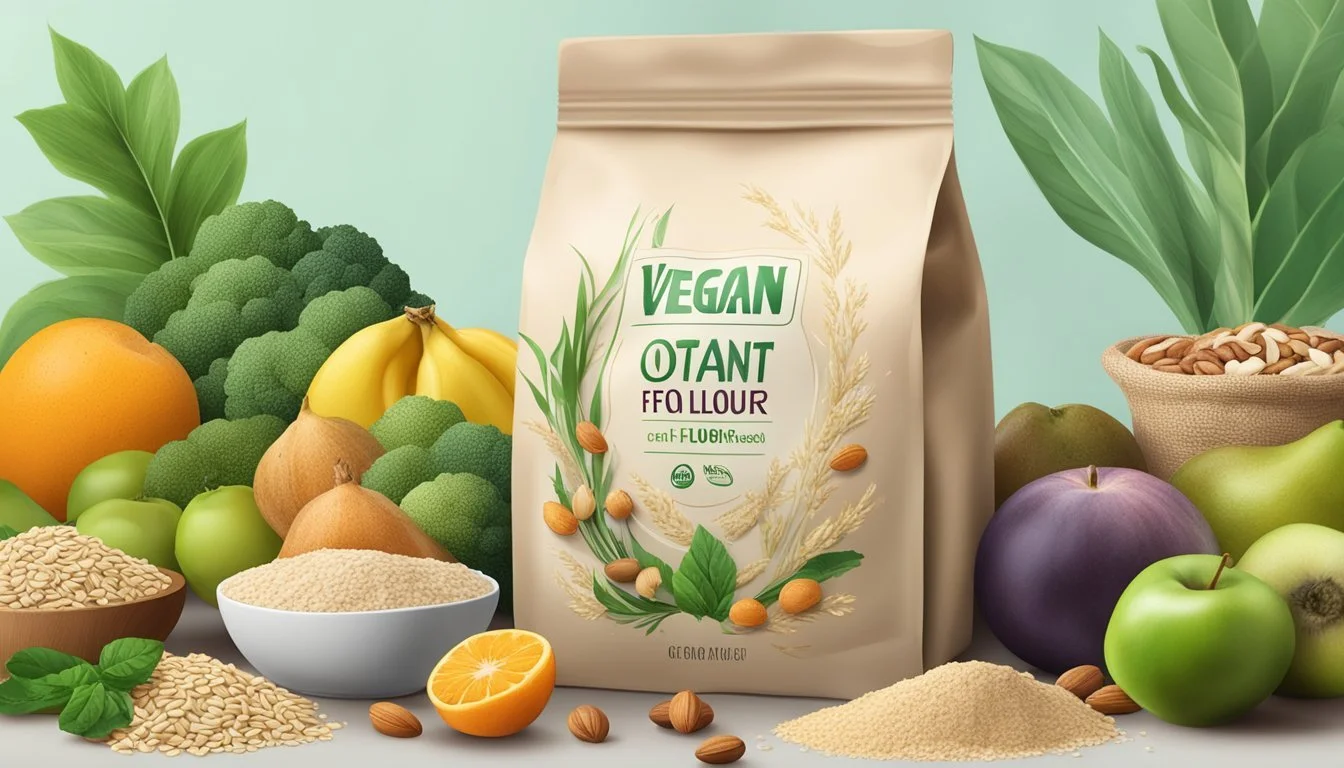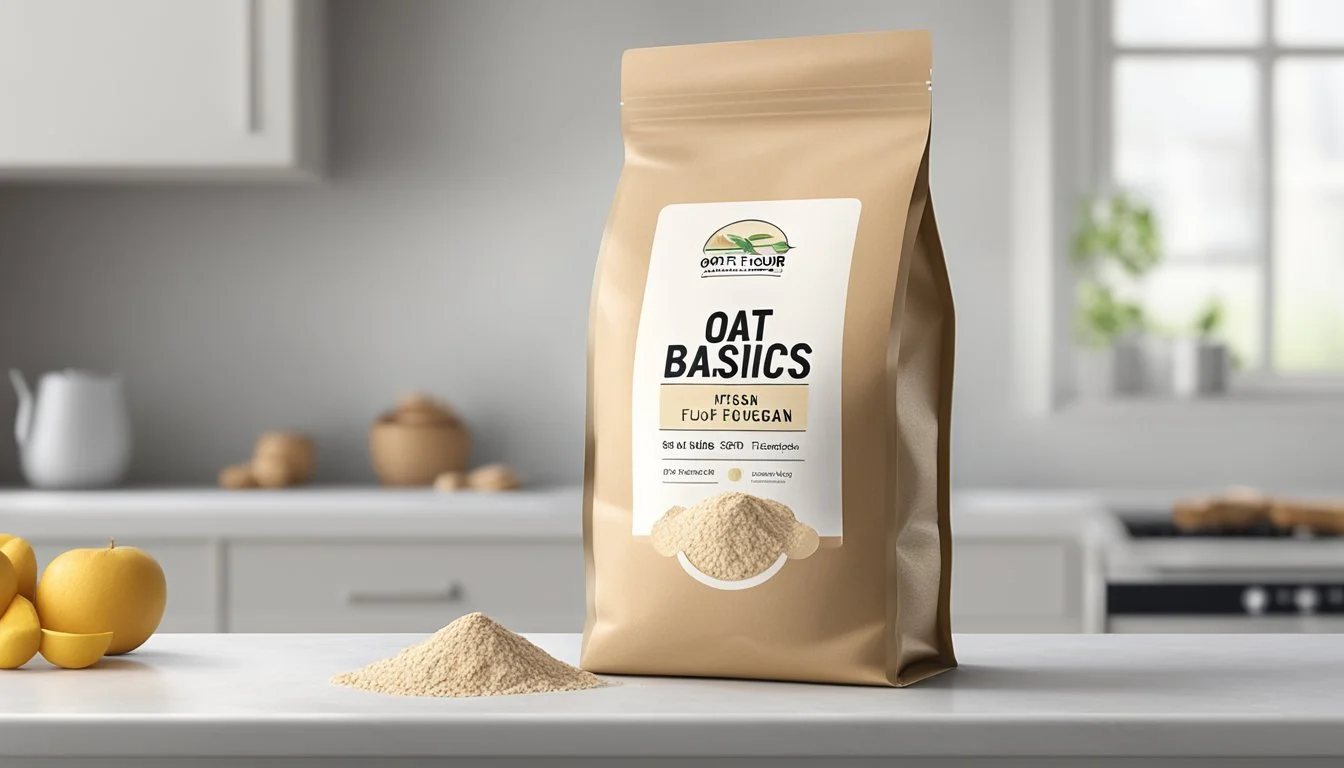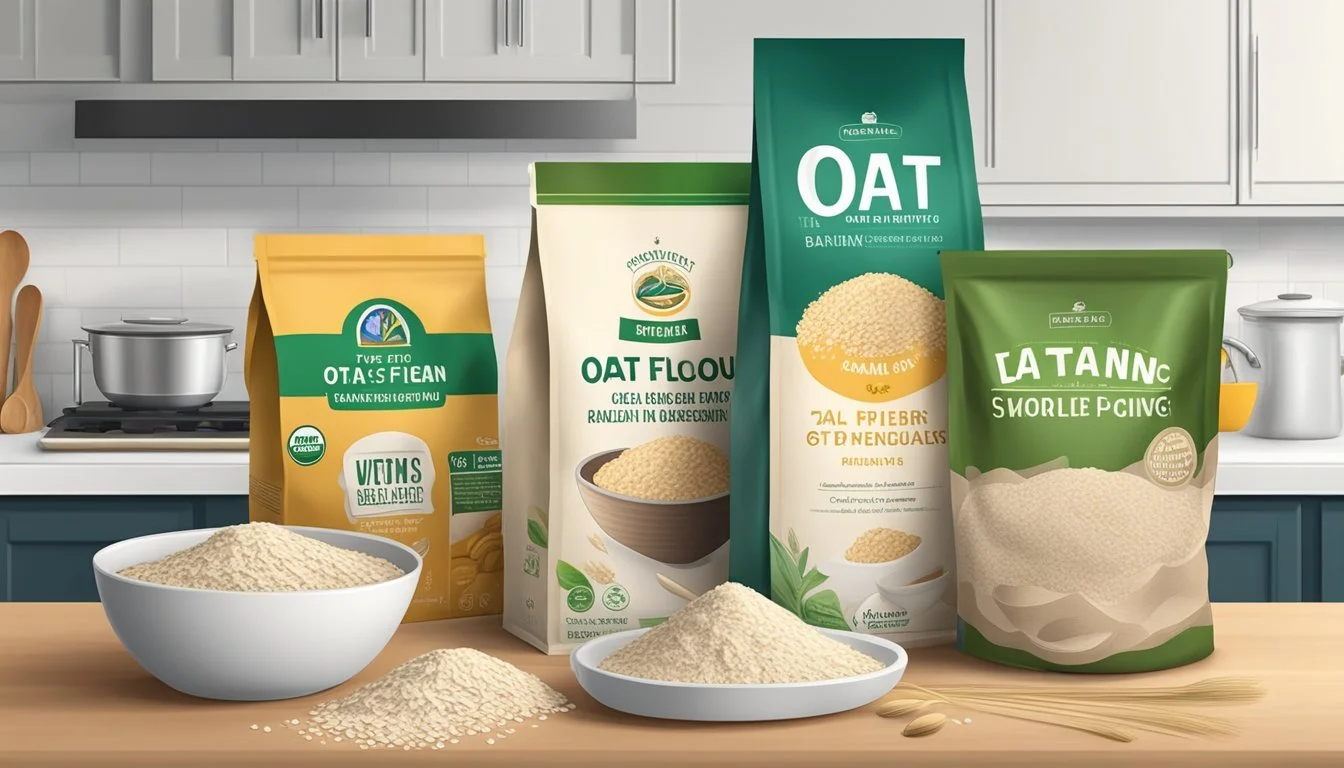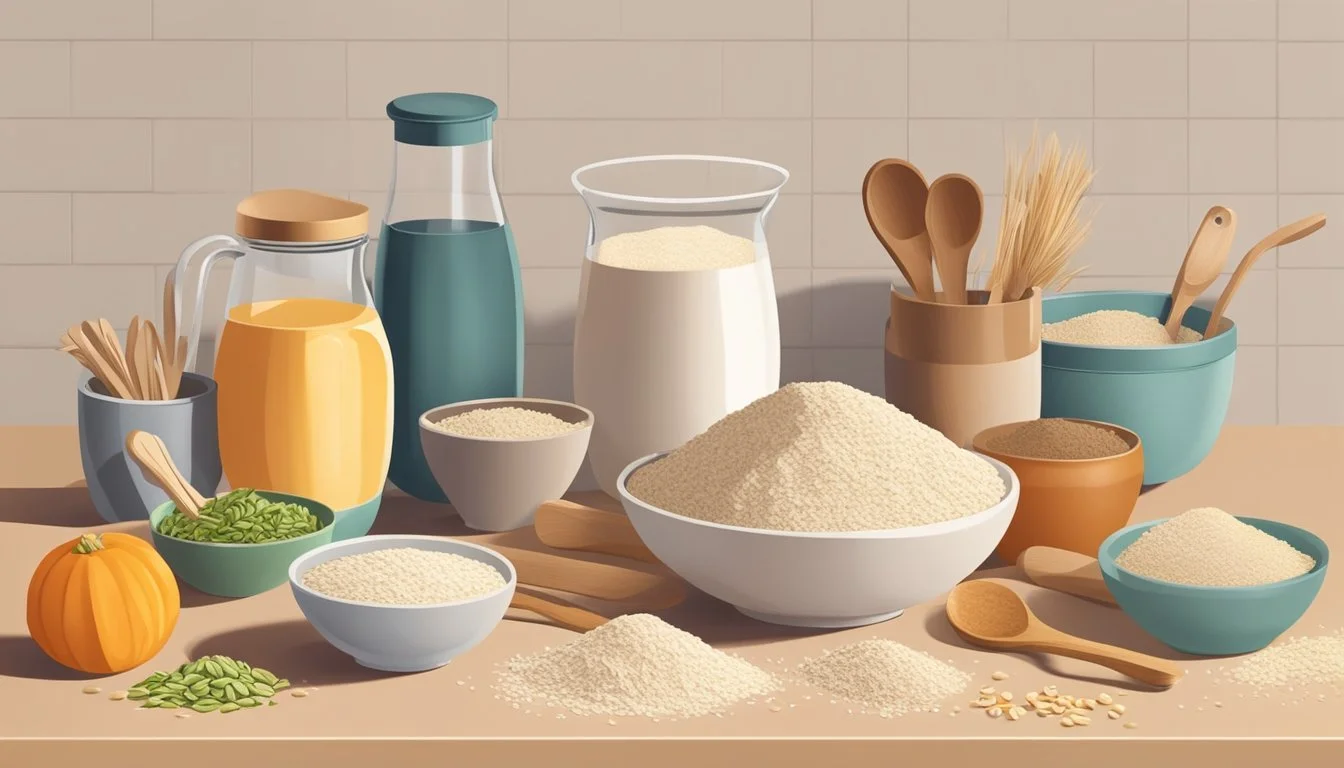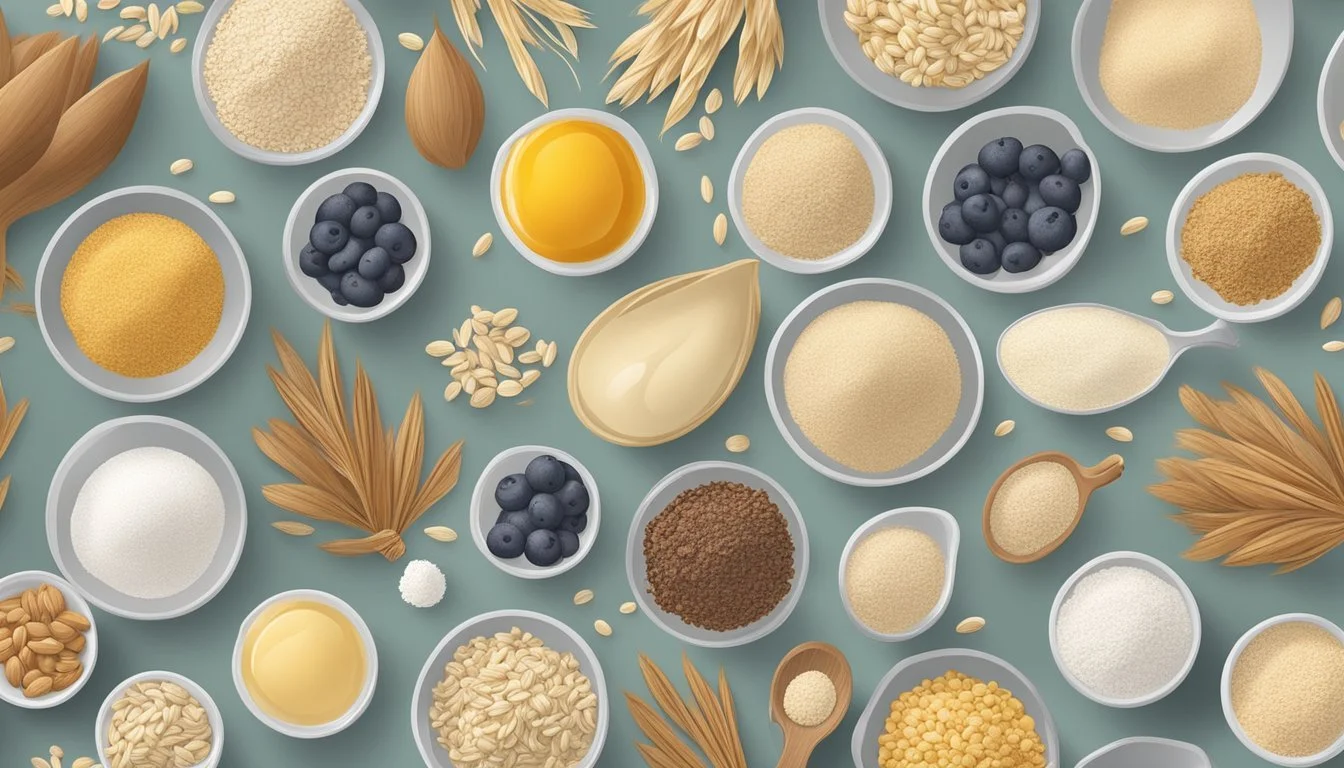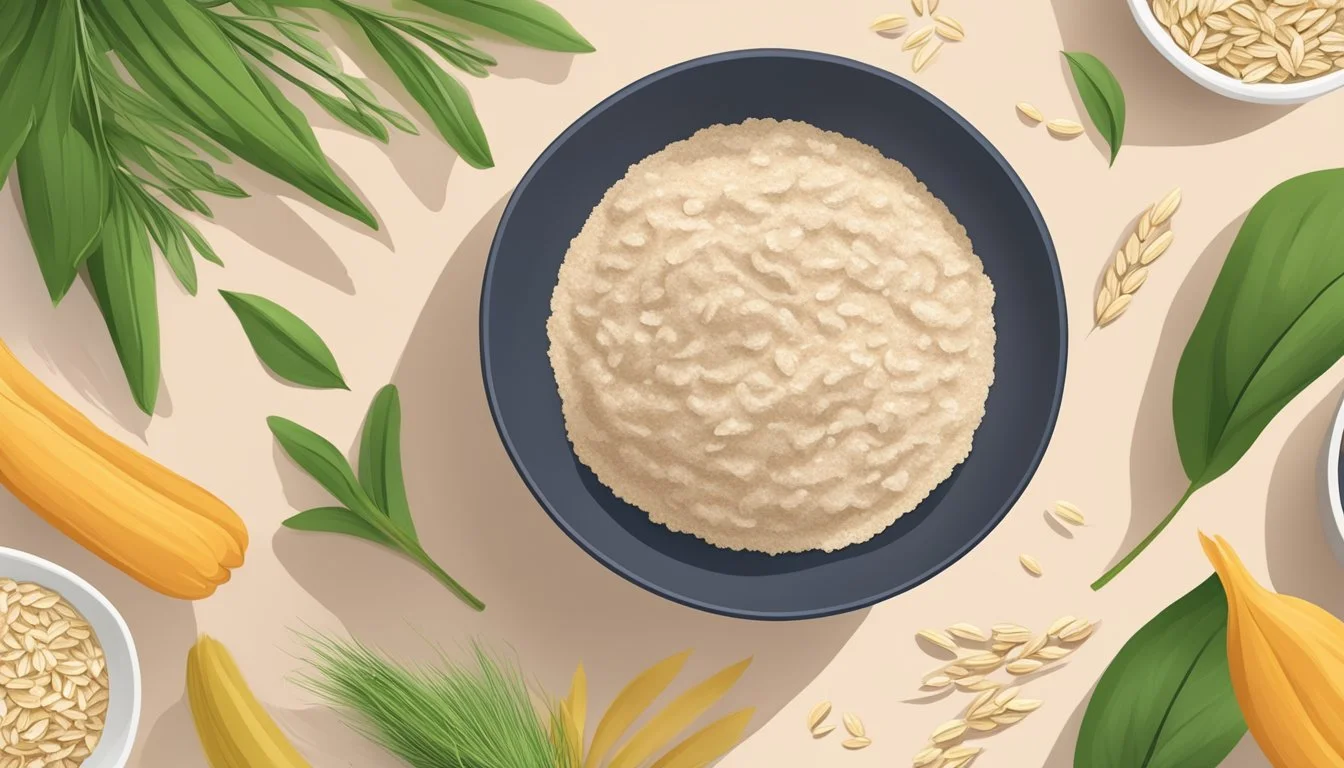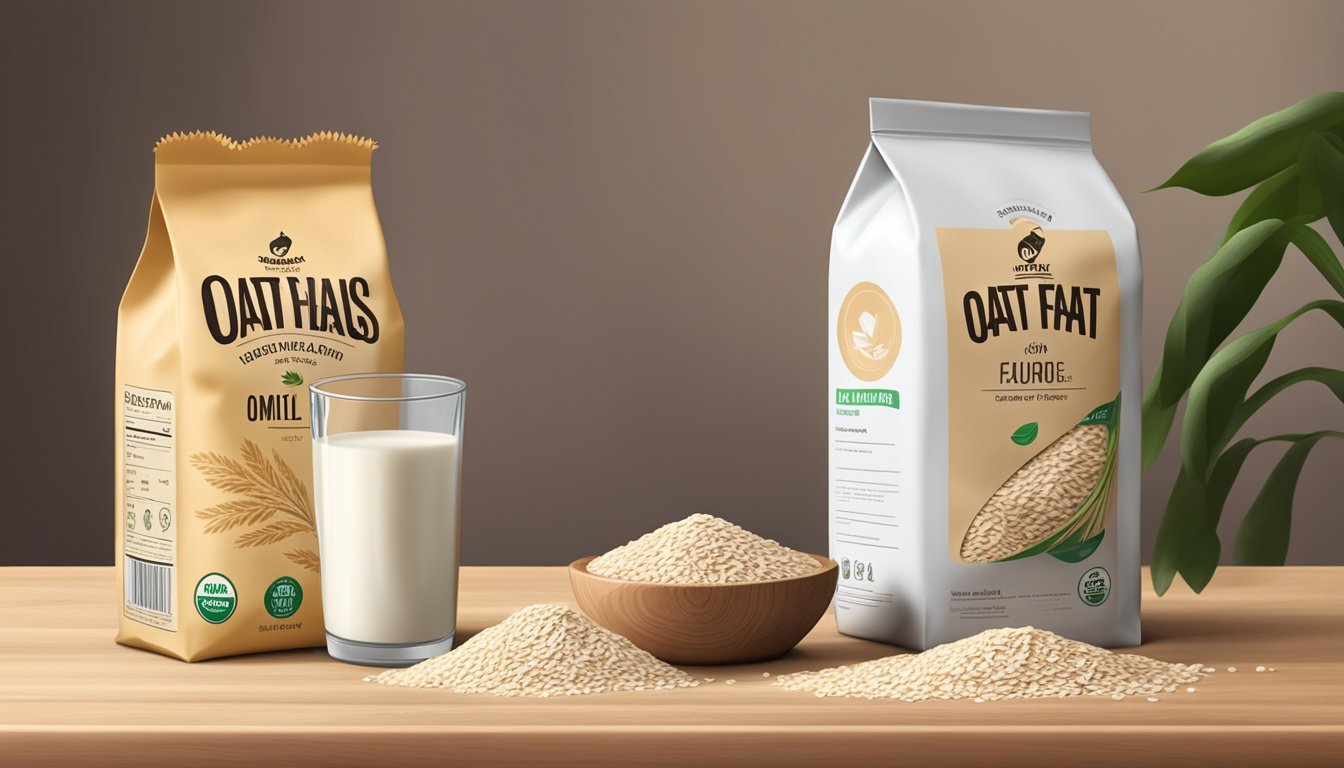Is Oat Flour Vegan?
Understanding Plant-Based Baking Essentials
Oat flour is a popular alternative to traditional wheat flour, particularly among those adhering to vegan diets. Extracted from ground oats, this flour carries a subtle sweetness and is often prized for its gluten-free qualities, although it is essential to ensure that it hasn't been contaminated with gluten from other sources if this is a concern. Oat flour aligns with vegan principles, meaning it contains no animal products or by-products, making it suitable for individuals who follow a plant-based lifestyle.
In the realm of vegan baking and cooking, oat flour is a versatile ingredient that adapts well to various recipes. It's frequently used in pancakes, bread, and cakes, serving as an ideal base for those seeking to avoid animal derivatives without compromising on texture or taste. Brands marketing oat flour typically target health-conscious consumers, emphasizing the product's vegan attribute alongside other benefits like being whole grain and a source of dietary fiber.
Discussing whether oat flour is vegan goes beyond its primary composition, as a conscientious vegan also considers the product's manufacturing process. For complete assurance, one should look for certifications indicating the absence of cross-contamination with non-vegan items, as well as ethical practices in the production chain. With increasing awareness and demand for vegan-friendly products, oat flour's prevalence in the market is indicative of a shift towards more inclusive and sustainable food options.
Oat Flour Basics
Oat flour is swiftly gaining popularity, appreciated for its health benefits and suitability within vegan diets. It delivers a wholesome alternative to traditional wheat flour, offering a rich nutritional profile.
Definition and Origin of Oat Flour
Oat flour is made by grinding whole grain oats into a fine powder. Originating from the oat plant, Avena sativa, oat flour retains most of the grain's original nutrients. While oats have been consumed for thousands of years, oat flour has recently become more prominent due to its health attributes and versatility in recipes.
Nutritional Profile
Oat flour is lauded for its high fiber content, which can aid digestion and provide a feeling of fullness. It contains essential vitamins and minerals, making it a nutritious option. Here's a simplified nutritional overview:
Nutrient Benefit Fiber Aids in digestion and satiety Protein Contributes to muscle repair and growth Iron Crucial for blood health Magnesium Supports numerous enzymatic reactions
This flour is also naturally gluten-free, but it must be processed in a gluten-free facility to avoid cross-contamination if being used by those with celiac disease or gluten sensitivity.
Vegan Status of Oat Flour
Oat flour is inherently vegan as it is derived from a plant source and does not involve animal products or by-products in its production. Consequently, it's an excellent ingredient for vegan baking, providing a nutritious, plant-based alternative to flours that may otherwise contain or be processed with animal-derived materials.
Vegan Baking Essentials
The art of vegan baking necessitates a selection of plant-based alternatives to traditional dairy and egg ingredients. These substitutes must be adept at not only imitating the textures and flavors of their non-vegan counterparts but also fulfilling their culinary functions in recipes.
Plant-based Substitutes for Dairy and Eggs
Milk Alternatives:
Vegan bakers often replace cow's milk with various plant-based milks such as:
These alternatives can be stored easily and used in a one-to-one ratio for traditional milk in recipes.
Egg Replacements:
For binding and leavening properties that eggs provide, vegans can use:
Mashed bananas (1 banana = 1 egg)
Flaxseeds (1 tablespoon ground flaxseed + 3 tablespoons water = 1 egg)
Apple cider vinegar mixed with baking soda
Leavening and Binding Agents
Leavening:
To promote rising in baked goods, vegan-friendly leavening agents like baking powder are crucial.
Binding:
For combining ingredients together and adding moisture, one can use:
Bananas
Applesauce
These provide the necessary binding typically contributed by eggs.
Vegan Sweeteners and Flavors
Sugar:
Vegans must be cautious as some sugars are processed with bone char. Alternatives include:
Coconut sugar
Maple syrup
Unrefined cane sugar
Flavorings:
To enhance flavors in vegan baking, natural extracts and syrups can be used, such as:
Pure vanilla extract
Lemon juice
Maple syrup
These add depth to the flavor profile of baked goods without relying on animal-based ingredients.
Specialty Dietary Considerations
Oat flour is a popular alternative in baking for those adhering to specialty diets, providing both a gluten-free option and a source of various health benefits. It caters to the nutritional and dietary needs of a wide range of consumers.
Gluten-Free Baking with Oat Flour
For individuals with celiac disease or gluten sensitivity, oat flour offers a safe and healthy alternative to traditional wheat-based flours. While oats are inherently gluten-free, they are often processed in facilities that handle wheat, posing a risk of cross-contamination. People should look for certified gluten-free oat flour to ensure it has not been contaminated with gluten during processing. In recipes, oat flour provides a similar texture and taste to wheat flour, making it an excellent substitute in gluten-free baking.
Health Benefits of Oat Flour
Oat flour is not only a gluten-free baking essential but also packed with nutrients, contributing to a healthier diet. It is inherently lower in fat compared to many traditional flours and rich in soluble fiber, which can aid in cholesterol management. Oat flour is also a good source of protein and iron, making it a nutrient-dense ingredient for those on vegan or vegetarian diets. With its beneficial properties, oat flour supports a wholesome lifestyle for those looking to enhance their dietary choices with healthy alternatives.
Oat Flour in Vegan Recipes
Oat flour serves as a versatile ingredient in vegan cooking, often used as a wheat flour alternative for those with gluten sensitivities or as a preference in plant-based diets. It is integral to various recipes, from hearty breakfasts to delicate desserts.
Breakfast Dishes
Oat flour adds a nutritious boost to vegan breakfast options. Pancakes and waffles made with oat flour not only provide a warm and comforting start to the day but also ensure a rich source of fiber. A typical Vegan Oat Flour Pancake recipe might blend banana with oat flour and a plant-based milk, such as almond or soy, for natural sweetness and moisture. For a slight variation, waffles can include similar ingredients and are cooked until crispy in a waffle iron.
Breads and Muffins
In vegan baking, oat flour is a favored choice for its dense yet tender crumb in products like banana bread and muffins. A simple Vegan Oat Flour Banana Bread might combine mashed bananas, vegan butter, and oat flour with a hint of vanilla for depth of flavor. Muffins, on the other hand, can range from simple vanilla to ones packed with fresh berries or dark chocolate chunks, offering a delightful plant-based treat.
Desserts and Sweet Treats
When it comes to desserts, oat flour is a powerhouse for creating indulgent yet wholesome sweet treats. Vegan cookies, such as Oat Flour Sugar Cookies, benefit from the flour's ability to bind ingredients without eggs, often using vegan butter to achieve the classic cookie texture. Cakes, like a Vanilla Oat Flour Cake, are tender and moist, often adorned with fruits, vegan chocolate, or frosting to bring out its subtle flavors. Oat flour ensures these desserts stay within the realm of vegan dietary preferences while still satisfying a sweet tooth.
Culinary Techniques and Tips
When working with oat flour, it’s crucial to understand the nuances of making it, measuring it accurately for recipes, and ensuring its longevity through proper storage.
Making Homemade Oat Flour
To make oat flour, one needs whole oats and a high-speed blender or food processor. Homemade oat flour is made by placing whole oats into the appliance and blending until a fine powder is formed. This process takes approximately 30 seconds to 1 minute. For best results, one should ensure the oats are ground evenly, stopping to scrape down the sides if necessary.
Measuring and Conversion Tips
Oat flour's weight can vary due to its ability to compact, so measuring by volume using measuring cups can result in inconsistent recipes. The use of a kitchen scale is recommended for accuracy, as it ensures the correct weight is used every time. As a general guide, 1 cup of oat flour weighs approximately 92 grams.
Storing and Shelf Life of Oat Flour
Oat flour should be kept in an airtight container to prevent moisture from seeping in. For optimal shelf life, one can store it in a cool, dry place, such as a pantry. If one doesn’t plan to use the oat flour regularly, storage in the refrigerator or freezer extends its freshness. When stored properly, oat flour can last up to 3 months in a pantry, and longer if chilled or frozen.
Exploring Oat Flour Alternatives
In the realm of vegan baking, oat flour is a popular choice due to its neutral taste and versatility. When considering an alternative, bakers must take into account not only the potentiality for the substitution to be vegan but also its impact on the nutritional content and texture of the final product.
Other Flour Options for Vegan Baking
Substitutes for oat flour in vegan baking are abundant, catering to a range of dietary requirements and flavor profiles. Almond flour, derived from whole, blanched almonds, is a grain-free option that adds richness and a nutty flavor to baked goods. However, it is denser and may require a binding agent.
Coconut flour, with its distinct taste and high fiber content, is another grain-free alternative, yet it absorbs more liquid and may need adjustments in recipes. For a more conventional baking experience, all-purpose flour is a viable substitute. It provides a consistent texture but lacks the nutritional advantages of whole grains. Whole-grain flours like spelt or buckwheat can serve as substitutes and offer similar advantages to oat flour, including fiber and vitamins.
Nutritional Comparisons
The nutritional content of a flour can greatly influence the health qualities of vegan baked goods.
Flour Type Protein Fiber Fat Notes Oat Flour Medium High Low Whole-grain, wholesome Almond Flour High Medium High Rich in healthy fats, gluten-free Coconut Flour Low Very High Low Gluten-free, requires more liquid All-Purpose Flour Low Low Low Refined, less nutritional value Whole-Grain Flour Medium High Variable Includes spelt, buckwheat; more nutrients
Each alternative flour has its distinct nutritional profile. For instance, almond flour is particularly high in protein and beneficial fats, making it a hearty choice for those looking to increase their protein intake. On the other hand, coconut flour stands out with its high fiber content, which can enhance digestive health. All-purpose flour typically falls behind in nutritional benefits due to its refinement process, which strips away many of the grains' natural nutrients. Whole-grain flours tend to offer a balance between nutrition and functionality, similar to oat flour.
Pairing and Flavor Combinations
Oat flour's versatility allows for it to be the base ingredient in a plethora of dishes, both savory and sweet. This section explores the variety of flavor pairings and toppings that oat flour can be combined with to create satisfying and delicious meals.
Savory Applications for Oat Flour
When using oat flour in savory dishes, its mild flavor complements a range of ingredients. For a nutritious twist, one can incorporate seeds such as pumpkin or sunflower seeds to add a crunchy texture and a boost of minerals. Nuts like almonds or walnuts can be ground with oat flour to create a hearty base for veggie burgers or a nutty crust for savory baked goods. Adding herbs and spices like cinnamon or nutmeg can subtly enhance the taste of oat flour-based pie crusts or crumbles. Mixing in nut or seed butters can also enrich doughs and batters, providing a creamy consistency and depth of flavor.
Sweet Pairings and Toppings
Oat flour is a star in sweet recipes, particularly when it counters bold flavors like chocolate. One can create decadent brownies or moist cakes by blending oat flour with cocoa or melted chocolate. Incorporating vanilla extract accentuates the natural sweetness of desserts and pairs beautifully with fruit toppings such as sliced strawberries or apple compote. For an exotic touch, coconut flakes add a tropical aroma and texture to cookies and muffins. Raisins or other dried fruit provide natural sweetness and chewiness to oat flour-based granola bars or breakfast cookies. A dollop of cashew yogurt on top of oat flour pancakes adds creaminess, while also increasing the protein content. The use of oat flour ensures that these pairings result in treats that are not just delicious, but also dairy-free and suitable for vegan diets.
Recipe Development and Adaptations
Developing recipes with oat flour as a vegan option offers flexibility and variety for those following a dairy-free lifestyle. This section delves into the creation of such recipes and the substitutions that can be made to accommodate additional dietary restrictions.
Creating Vegan Oat Flour Recipes
When creating vegan oat flour recipes, chefs prioritize the use of plant-based ingredients. Oat flour serves as an excellent base for a variety of vegan recipes due to its natural lack of animal products. To exemplify, a vegan oat flour pancake recipe might include a mix of oat flour, non-dairy milk—such as almond or soy milk—and banana as a binder in place of eggs. This composition supports those who prefer dairy-free options while still enjoying traditional foods like pancakes.
Example Vegan Oat Flour Pancake Ingredients:
Oat flour: 1 cup
Non-dairy milk: 1 cup
Ripe banana (mashed): 1
Baking soda: 1 tsp.
Substitutions for Dietary Restrictions
Flexibility with substitutions is crucial for individuals with further dietary restrictions beyond veganism. When dairy and egg products are not an option, ingredients such as vegan yogurt and almond butter can be utilized to maintain moisture and texture in baked goods. Vegan yogurt can serve as a creamy binder in oat flour muffins, while almond butter can add richness to cookies without the need for dairy-based butter.
Substitution Examples for Various Recipes:
For moistness in muffins: Substitute 1 egg with 1/4 cup vegan yogurt.
For richness in cookies: Substitute dairy butter with equal parts almond butter.
Frequently Asked Questions
In this section, we will address common queries related to oat flour's role in vegan diets and baking, with a focus on its characteristics and benefits in the vegan kitchen.
Common Concerns about Oat Flour
Is oat flour vegan? Yes, oat flour is inherently vegan, as it is made by grinding whole-grain oats, which are plant-based. However, consumers should check for cross-contamination with non-vegan products if the packaging does not specify that it is vegan.
Is oat flour gluten-free? While oats are naturally gluten-free, oat flour can sometimes be processed in facilities that handle wheat or other gluten-containing grains, leading to cross-contamination. Those requiring a gluten-free diet should look for certified gluten-free oat flour.
Can rolled oats or steel-cut oats be used to make oat flour? Rolled oats are the most commonly used for making oat flour due to their soft texture that grinds well. Steel-cut oats can be used but are harder and may require a more powerful blender to achieve a fine flour.
Benefits of Oat Flour in Vegan Baking
Nutritional advantages:
Whole-grain goodness: Oat flour retains most of the nutrients found in whole-grain oats, making it a nutritious addition to vegan baking.
Fiber content: It is high in fiber, particularly beta-glucan, which can support heart health.
Baking properties:
Mild flavor: Oat flour has a subtle, slightly sweet taste that does not overpower other ingredients.
Moist texture: Baked goods using oat flour tend to be moist and tender.
Versatility:
Oat flour can replace all-purpose or wheat flour in many recipes, often requiring only minor modifications. This makes it a versatile staple in a vegan pantry.
Conclusion
Oat flour is recognized as a plant-based product derived from whole oat grains, making it inherently vegan. It contains no animal products or by-products, allowing it to align well with a vegan diet that excludes all forms of animal exploitation and cruelty.
Oat flour's versatility shines in its ability to substitute traditional flours in a plethora of recipes, from baked goods to pancakes. Its adaptability makes it a staple in vegan kitchens where a wide variety of plant-based dishes are crafted regularly.
Environmental Impact
From a sustainability standpoint, oat cultivation tends to be more environmentally friendly compared to many other crops. Lower greenhouse gas emissions and less water usage contribute to oat flour’s sustainable profile.
Nutritional Advantage
Rich in fiber
Good source of protein
Contains essential vitamins and minerals
This nutritional profile benefits anyone seeking a healthy, balanced diet, especially those adhering to veganism.
In summary, oat flour is a commendable choice for those who are vegan and for those who are interested in a sustainable and health-conscious lifestyle. Its versatility and nutritional benefits are appreciated not only by vegans but also by anyone looking to diversify their dietary choices with plant-based options.

